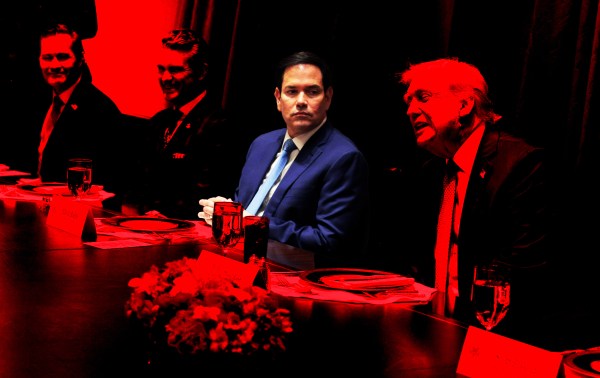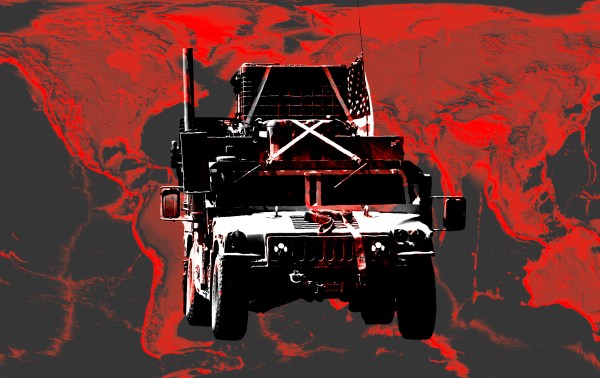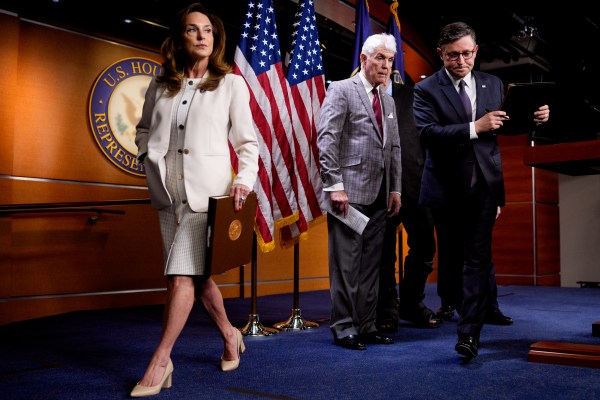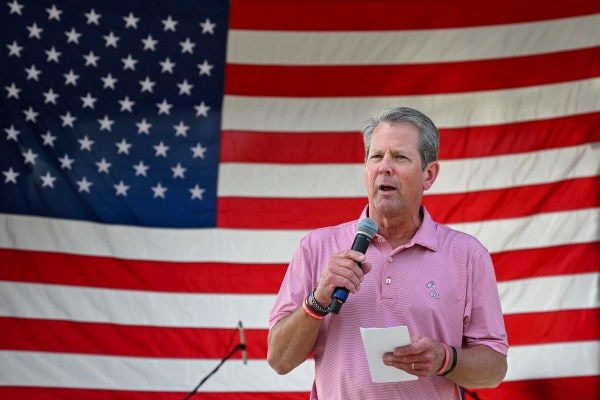Happy Friday! For one Kentucky mom, stepping out the door to a wall of 22 boxes containing Dum-Dum lollipops lining the hall must have caused quite the confusion. But her 8-year-old son, who coincidentally has access to her Amazon account, appeared less confused by the arrival of 70,000 lollipops: “Mom, my suckers are here!”
(For all we put our moms through, giving them the gift of thoughtful, informed journalism is the least we can do this Mother’s Day. Click here to explore our Dispatch membership options!)
Quick Hits: Today’s Top Stories
- Cardinal Robert Prevost, a 69-year-old Chicago native, was elected to the papacy on Thursday by the papal conclave in Rome, assuming the name Pope Leo XIV and becoming the first-ever American-born pope. After graduating from Villanova University with a mathematics degree in 1977, Prevost was ordained as a priest in 1982 and eventually went on to serve in Peru for two decades, becoming a naturalized citizen of the country. Pope Francis, his predecessor, named him a bishop of the Diocese of Chiclayo, Peru, in 2015, and in 2023 appointed him as a cardinal and head of the Dicastery of Bishops, which oversees bishop appointments around the world.
- India and Pakistan accused one another of carrying out drone and missile attacks on Wednesday night and Thursday morning, as the conflict sparked by last month’s terrorist attack in Kashmir continued to escalate. Pakistan claimed to have shot down 12 Indian drones, while India said it prevented drone and missile attacks on 15 sites. India further accused Pakistani airstrikes of targeting three of its military bases. Pakistan has denied engaging in the cross-border fire, despite the country’s defense minister indicating Thursday that further retaliation by Islamabad was “increasingly certain.”
- Five Iranian nationals arrested in Britain last weekend are suspected of planning a terrorist attack on the Israeli embassy in London, the U.K.-based Times newspaper first reported Wednesday. British police are currently questioning four of the suspects, while the fifth has been released on bail. Iranian Foreign Minister Abbas Araghchi said Wednesday night that the Islamic Republic “categorically rejects any involvement” in the alleged plans, and suggested, without evidence, that the foiled attack was a third-party “false flag” operation designed to sabotage diplomatic relations.
- President Trump and U.K. Prime Minister Keir Starmer on Thursday announced a new trade deal that will keep a 10 percent U.S. baseline tariff on British imports, but spare the first 100,000 British-made automobiles sold to the U.S. from 25 percent tariffs. The formal agreement has not yet been signed. While the full details of the deal have yet to be released, the White House said it will include the creation of a “new trading union for steel and aluminum” and lower tariff rates on U.K.-manufactured airplane parts. In exchange, the U.K. agreed to increase its purchases of U.S. goods, including beef, ethanol, and completed airplanes.
- Meanwhile, the European Union on Thursday released a list of potential U.S. imports that it plans to target in the event that no resolution is reached with the Trump administration. The list includes $107 billion worth of American products, including airplanes, automobiles, car parts, wine, beer, and liquor. Trump so far has implemented a blanket 10 percent tariff on E.U. imports, which he on April 2 announced would be raised to 20 percent before ultimately issuing a 90-day delay. “The EU remains fully committed to finding negotiated outcomes with the U.S.,” EU Commission President Ursula von der Leyen said Thursday. “At the same time, we continue preparing for all possibilities.”
- The Trump administration on Thursday sanctioned a Chinese oil refinery and three Chinese port operators it accused of purchasing and receiving “hundreds of millions of dollars’ worth of Iranian oil.” The privately-owned Chinese refinery, Hebei Xinhai, allegedly processes Iranian oil, while the three Chinese firms operating a terminal in northern China’s Dongying Port are said to have received Iranian oil imports. Additionally, the administration sanctioned six vessels and their owners, along with two Indian ship captains, for allegedly transporting illicit Iranian oil to China and the Persian Gulf.
- Microsoft founder Bill Gates announced Thursday that he would be donating 99 percent of his fortune to the Gates Foundation—more than $10o billion and one of the largest philanthropic gifts of all time. He also said that the Gates Foundation, which he founded, would be wound down by 2045 in order to ensure that it spent as much of the money as possible. The gift will allow the foundation to spend an additional estimated $200 billion over the next two decades, continuing its work in supporting scientific research, education, and global health care.
- President Trump on Thursday withdrew his pick for U.S. attorney for Washington D.C., Ed Martin—who was serving in the role on an interim basis—announcing plans to appoint Fox News commentator Jeanine Pirro to fill the position for now. On Tuesday, GOP Sen. Thom Tillis of North Carolina, a member of the Senate Judiciary Committee, said he would oppose Martin’s bid over his views on the January 6 attack on the Capitol, leaving support for Martin’s confirmation in the committee deadlocked at an 11-11 tie. Martin had previously said that the January 6 attack was “staged” and referred to federal prosecutors of January 6 defendants as “despicable people.”
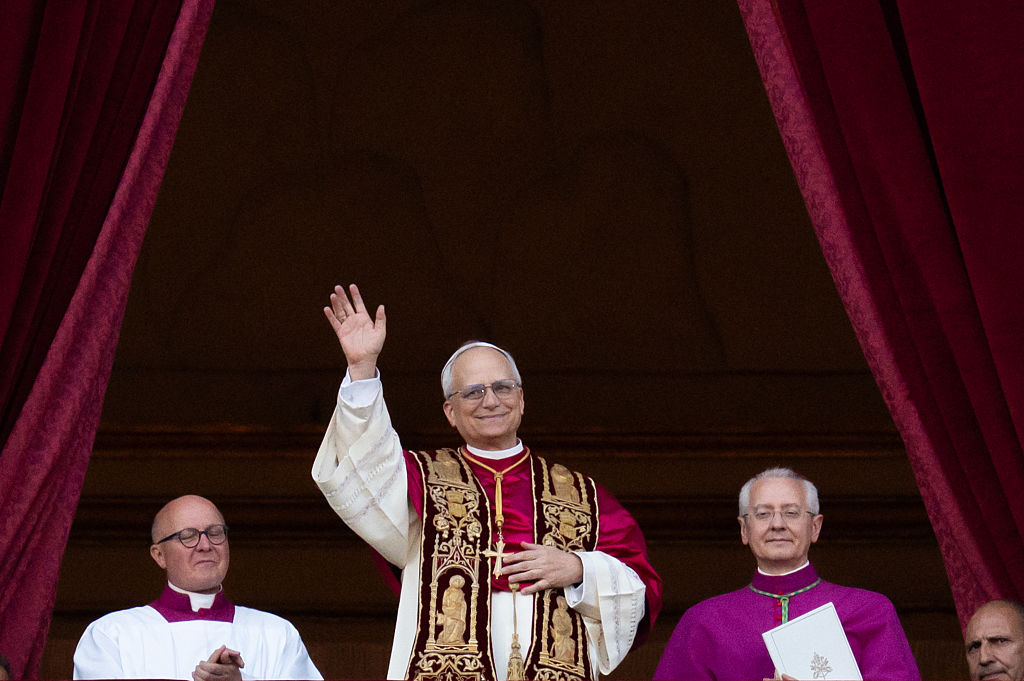
The Roman Catholic Church has its first American pope. But don’t worry—it’s not Donald Trump (despite his recent campaigning for the papacy).
Just after 6 p.m. local time on Thursday, white smoke from the chimney of the Sistine Chapel signaled that the papal conclave had chosen the next bishop of Rome. On the second day of voting in a closed-door process, at least 89—or two-thirds—of 133 voting cardinals lent their support to a 69-year-old Chicago native: Cardinal Robert Prevost. Now called Leo XIV, the new pope will be tasked with serving as the spiritual guide to more than 1.4 billion Catholics worldwide at a moment of growth and upheaval for the church.
Donning red and gold vestments, the new pontiff addressed crowds in Italian and Spanish from a balcony overlooking St. Peter’s Square in Vatican City yesterday evening. “God loves us, all of us, evil will not prevail. We are all in the hands of God. Without fear, united, hand in hand with God and among ourselves, we will go forward,” he said, before speaking directly to the church of Rome: “We have to look together how to be a missionary church, building bridges, dialogue, always open to receiving with open arms for everyone, like this square, open to all, to all who need our charity, our presence, dialogue, love.”
Prevost is assuming the papacy at an uncertain time, as the Catholic Church confronts a polarized world and navigates internal clashes between modernity and tradition. Despite initial reports that he aligns in many ways with the late Pope Francis, it’s unclear whether Prevost will adopt the often progressive approach of his predecessor or seek to return to the Vatican to its more traditional roots.
Prevost’s first encounters with Catholicism came early in life. He served as an altar boy and later attended a seminary high school. He eventually went on to complete a doctorate in canon law after earning a bachelor’s degree in mathematics in 1977. Prevost was ordained as a priest in 1982, and three years later, moved to Peru, where he would serve as a missionary before eventually leaving to head the Order of St. Augustine between 2001 and 2013.
Prevost later returned to Peru in 2014, becoming a citizen and eventually the bishop of the Diocese of Chiclayo, which includes the populous northwestern city of Piura. He ended his mission in Peru in 2023, after being named the president of the Pontifical Commission for Latin America—a department that oversees some 40 percent of the world’s Catholics—and head of the Dicastery for Bishops, which is charged with leading the selection of new bishops. Prevost became a cardinal the same year but continued to profess his commitment to the missionary cause. “I still consider myself a missionary,” he told Vatican News in 2023. “My vocation, like that of every Christian, is to be a missionary, to proclaim the Gospel wherever one is.”
In February 2024, Pope Francis promoted Prevost to the position of cardinal-bishop. While Prevost is generally known as a supporter of Pope Francis, it’s unclear whether Prevost will take up the often controversial causes of his predecessor, which arguably left the church more divided than when he inherited it in 2013.
Prevost—once described as the “dignified middle of the road” candidate for the papacy—has criticized the former pope’s endorsement of blessings for same-sex marriages, arguing that support for the practice alienates bishops in Africa, where views on sexuality are often highly conservative. But on the role of women in the church, Prevost has largely aligned with his predecessor in opposing their ordination. Although he has said women “can add a great deal to the life of the church on many different levels,” he has argued that making them priests “doesn’t necessarily solve a problem. It might make a new problem.”
Francis’ call for world leaders to “build bridges, not walls,” also seems to have resonated with Prevost. His appointment breaks a decades-long taboo on electing American popes for fear that the world’s secular superpower would dominate the Catholic Church’s religious authority, but for now, the new pope looks more poised to be a thorn in the White House’s side than an arrow in its quiver. On X, Prevost has posted and reposted several articles criticizing the Trump administration’s hardline immigration policy, foreshadowing possible clashes between the Vatican and Washington.
The new pontiff will also inherit the papacy amid continuing efforts to root out sexual abuse within the church. But Prevost himself has faced scrutiny for his past handling of abuse cases. As head of the Augustinians’ Midwest province in Chicago, a role he served in from 1998 to 2010, he permitted a priest with a known record of sexually assaulting minors to live in an Augustinian rectory close to a school. In a more recent incident, three women accused him of failing to launch an immediate investigation into abuse allegations against clergymen in the Diocese of Chiclayo. But commentators have challenged claims about his purported negligence.
Pope Francis made history as the first Jesuit pope; the new pontiff has made his own history by being the first pope from the Order of St. Augustine (OSA), founded in 1244 and focused on community and service. “Community is the axis around which Augustinian religious life turns: a community of brothers who live harmoniously in their house, united by a single soul and a single heart, seeking God together and open to the service of the Church,” reads the constitution of the OSA.
And Prevost himself has espoused those ideals of community and service. “We are often preoccupied with teaching doctrine, the way of living our faith, but we risk forgetting that our first task is to teach what it means to know Jesus Christ and to bear witness to our closeness to the Lord,” he said in a 2023 interview with Vatican News. “This comes first: to communicate the beauty of the faith, the beauty and joy of knowing Jesus. It means that we ourselves are living it and sharing this experience.”
Today’s Must-Read
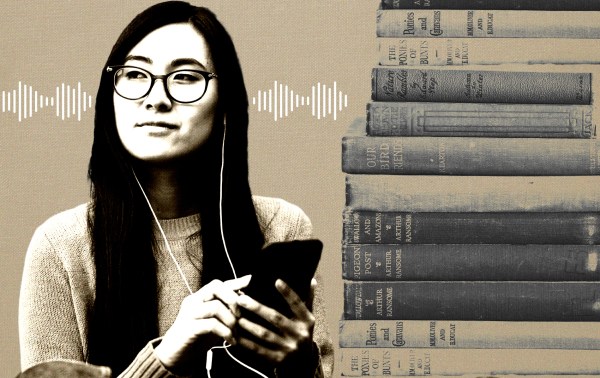
Feelings, Facts, and Our Crisis of Truth
We tend to take our modern world for granted—running water, piped-in gas, an electricity grid, internet, superabundant consumer goods, medicines, and life-saving surgeries performed under anesthesia. Citizens in a modern liberal society are like fish in water: They don’t comprehend the luxuriousness of their lifestyles and could not survive without them. We are surrounded by the fruits of liberal capitalism to the point where critics of this system rely on the very tools created by it to condemn it. Yet success has bred complacency, and in the third decade of the 21st century, this complacency is now coming home to roost.
Toeing the Company Line
Worth Your Time
- In the New Yorker, Jordan Salama detailed migrant life in the big city. “In recent years, the newest residents have come mostly from Venezuela, Colombia, and Ecuador. Such migrants line up each day at dawn at paradas—’stops’—hoping to get picked up for day jobs, like tiling, roofing, or painting. At least among Spanish speakers, paradas across New York are known by names that describe either their location or their purpose, such as ‘La de Limpieza’ (‘the Housecleaning One’) or ‘Home Depot.’ How these spring up is less complicated than one might think—people learn to do whatever work is immediately available in the area,” he wrote. “Earlier this year, after the Trump Administration took power and began what it called the ‘largest deportation effort in U.S. history,’ the numbers lessened for a while—people are terrified of ICE. A regular told me that, at least twice, an unmarked car pulled up to the parada, sending everyone running. But attendance at the parada has since returned to pre-Trump levels, despite the obvious risks. People have to work.”
- Russia’s creed is not Orthodox Christianity but “a religion of war created and propagated by state and Church officials alike,” Ian Garner argued in New Statesman. “The most important date in this religion’s calendar is not Easter—it is Victory Day on 9 May. … Under Putin, Second World War celebrations have become central to state ideology. The young president attended a Victory Day parade on Red Square just two days after ascending to office in 2000, and he has since transformed the day into a centrepiece of state religion. The increasingly bombastic celebration of Russia’s role in the Second World War has been described many ways, from ‘cult’ to pobedobesie, a Russian neologism that decries the obsession as ‘victory fever.’ But above all, this celebration bears all the hallmarks of a religion. It has its own holidays (on 9 May and other dates that mark great victories); its own temples (which take the form of memorial and museum complexes both Soviet and new); and holy scripture in the form of novels, films, and textbooks that reiterate a myth of religious sacrifice.”
Washington Post: Trump Tells Congress To Raise Taxes On The Rich In Budget Bill
New York Times: Intelligence Agencies Increase Focus on Greenland, U.S. Officials Say
In the Zeitgeist
Indie rock band Arcade Fire releases its new album today: Pink Elephant, produced by Columbia Records. If you haven’t already woken up to the Montreal-based band, their performance at the 2014 Glastonbury Festival might do the trick.
Let Us Know
Do you think the new pope will be a uniter of the world’s Catholics?


